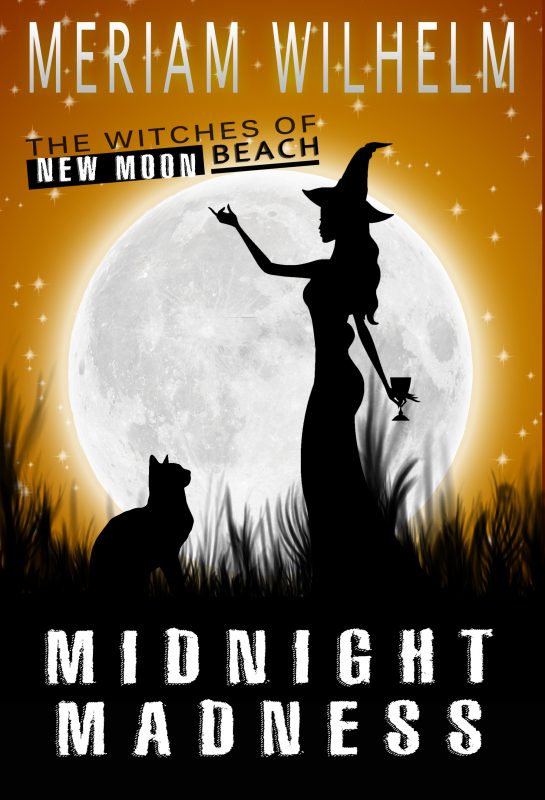Part 2: Things Are Not Fine
January 6, 2006 by A Slice of Orange in category Archives tagged as Craft
A Slice of Orange Blog is pleased to bring you part-two of Susan Squires Blog! For part-one, please scroll down to the preceding blog.
I had a great time during the holidays. I connected with friends and relatives, and I got pretty much just what I wanted for Christmas. Which started me thinking. That would not be a great situation for a novel. We want life to be nice to us, but we can’t be nice to our characters.
Because I’ve been knee-deep in contest entries recently as judging season rolls around, I wanted to talk just a bit about conflict. You may remember recently that I advised taking time to think about what each character wants out of a scene. It’s also important in constructing both your book and your scene to have the reader clear on why that character can’t have what they want.
Yep! Your main character can’t get what they want most, or even whatever they want out of a particular scene, for most of the book. If the scene looks like they do get what they want, there has to be an unforeseen outcome or some kind of a mistake which puts that character right back in conflict. Maybe they got what they thought they wanted, but the reader knows better. If they don’t get what they want, take that opportunity to make not getting it have an even worse consequence. Let’s look at an example. Sally wants to have John ask her to take a ride in his new car. He does. But they get in an accident and are stranded miles from town. Or he does, but the reader knows that he’s secretly a rat who will take advantage of her, and she shouldn’t be going anywhere alone with him. Make it worse—he’s a serial killer! Or he’s a great guy but he doesn’t ask her and worse yet, he asks her arch-rival Ann, instead. And they run over her bicycle which is her only transportation to school. And they laugh at her! You get the idea.
So the question you are asking yourself in each scene is “Does my character get what she wants?†The answer is either, “ Yes, but……†or, “No, and furthermore….†It’s hardly ever just “yes.†Until the last scene! Okay, I only put in “hardly ever†because I’m not a believer in rules. But I do believe that if the main character gets exactly what she wants without her having reservations or without the reader feeling that it was a big mistake, you are letting the story tension seriously lapse. If you do that at the end of the chapter, the reader may close the book and never pick it up again. You leave the reader feeling, “Nice, but so what?†instead of being on pins and needles to see what happens next.
Now let’s talk a little bit about the beginning of a book (remember, I’ve been reading a lot of contest entries, and they’re always about the beginning.) Here, setting the conflict has to come as early as you can manage it. I’ve seen lots of entries where the first pages set the stage, and things are just fine. Uh, oh. Setting the stage can work, but the character has got to have some problem. Okay, she may not have been transported to another universe where she will have to save earth from certain destruction by aliens yet, but she’s got issues! They can be internal conflicts, relationship problems, character flaws, something…. but “things are just fine†doesn’t capture a reader’s interest. Start things off in the middle of “not fine,†and go from there.
Going back to the example I gave of character motivation, what the hero and heroine want is, ideally, in conflict. I used The Companion as an example in my last blog, where Ian and Beth both want to return to the life they once knew. He can’t because he’s a vampire and a normal life is denied him, and her father died, forcing her to abandon her life as an itinerant archeologist. Okay, that means each has conflict between what they want and what they can have. But when we find he wants to return to England where she has always been wildly unhappy and she wants to return to North Africa where he suffered as a slave and has vowed never to return, their goals are in conflict with each other as well. Of course, we know that they are more the same than different. It’s what draws them together. And we suspect that during the course of the story, what they want will change, but the idea is to start them off with things, “not being fine.â€
So, let’s consciously separate ourselves from our characters. I hope the holidays were everything you wanted and expected, and I hope in 2006 you make your characters suffer until the last possible moment!
Affiliate Links
A Slice of Orange is an affiliate with some of the booksellers listed on this website, including Barnes & Nobel, Books A Million, iBooks, Kobo, and Smashwords. This means A Slice of Orange may earn a small advertising fee from sales made through the links used on this website. There are reminders of these affiliate links on the pages for individual books.
Search A Slice of Orange
Find a Column
Archives
Featured Books
THE OTHER SIDE OF THE RIDGE, NEW YORK, 1930
Dan Rodin has once again transcended time...
More info →FREYA Viking Glory Book Two
What happens when an immovable object meets an unstoppable force? Sparks fly and love blooms.
More info →THE SECRET POISON GARDEN
Rita Calabrese finds her newfound journalistic zeal on a collision course with her fierce maternal instinct.
More info →65 THINGS TO DO WHEN YOU RETIRE
Practical and entertaining advice about how to create a fulfilling retirement.
More info →MIDNIGHT MADNESS
As if Olivia Merriman doesn’t have enough to do in her beloved town of New Moon Beach, now her grouchy great-grandmother has recruited her to head up their coven of witches; her sisters are miffed, the coven is pushing her to accept the job, and to top it all off an evil wizard is messing with her love life.
More info →Newsletter
Contributing Authors
Search A Slice of Orange
Find a Column
Archives
Authors in the Bookstore
- A. E. Decker
- A. J. Scudiere
- A.J. Sidransky
- Abby Collette
- Alanna Lucus
- Albert Marrin
- Alice Duncan
- Alina K. Field
- Alison Green Myers
- Andi Lawrencovna
- Andrew C Raiford
- Angela Pryce
- Aviva Vaughn
- Barbara Ankrum
- Bethlehem Writers Group, LLC
- Carol L. Wright
- Celeste Barclay
- Christina Alexandra
- Christopher D. Ochs
- Claire Davon
- Claire Naden
- Courtnee Turner Hoyle
- Courtney Annicchiarico
- D. Lieber
- Daniel V. Meier Jr.
- Debra Dixon
- Debra H. Goldstein
- Debra Holland
- Dee Ann Palmer
- Denise M. Colby
- Diane Benefiel
- Diane Sismour
- Dianna Sinovic
- DT Krippene
- E.B. Dawson
- Emilie Dallaire
- Emily Brightwell
- Emily PW Murphy
- Fae Rowen
- Faith L. Justice
- Frances Amati
- Geralyn Corcillo
- Glynnis Campbell
- Greg Jolley
- H. O. Charles
- Jaclyn Roché
- Jacqueline Diamond
- Janet Lynn and Will Zeilinger
- Jeff Baird
- Jenna Barwin
- Jenne Kern
- Jennifer D. Bokal
- Jennifer Lyon
- Jerome W. McFadden
- Jill Piscitello
- Jina Bacarr
- Jo A. Hiestand
- Jodi Bogert
- Jolina Petersheim
- Jonathan Maberry
- Joy Allyson
- Judy Duarte
- Justin Murphy
- Justine Davis
- Kat Martin
- Kidd Wadsworth
- Kitty Bucholtz
- Kristy Tate
- Larry Deibert
- Larry Hamilton
- Laura Drake
- Laurie Stevens
- Leslie Knowles
- Li-Ying Lundquist
- Linda Carroll-Bradd
- Linda Lappin
- Linda McLaughlin
- Linda O. Johnston
- Lisa Preston
- Lolo Paige
- Loran Holt
- Lyssa Kay Adams
- Madeline Ash
- Margarita Engle
- Marguerite Quantaine
- Marianne H. Donley
- Mary Castillo
- Maureen Klovers
- Megan Haskell
- Melanie Waterbury
- Melissa Chambers
- Melodie Winawer
- Meriam Wilhelm
- Mikel J. Wilson
- Mindy Neff
- Monica McCabe
- Nancy Brashear
- Neetu Malik
- Nikki Prince
- Once Upon Anthologies
- Paula Gail Benson
- Penny Reid
- Peter Barbour
- Priscilla Oliveras
- R. H. Kohno
- Rachel Hailey
- Ralph Hieb
- Ramcy Diek
- Ransom Stephens
- Rebecca Forster
- Renae Wrich
- Roxy Matthews
- Ryder Hunte Clancy
- Sally Paradysz
- Simone de Muñoz
- Sophie Barnes
- Susan Squires
- T. D. Fox
- Tara C. Allred
- Tara Lain
- Tari Lynn Jewett
- Terri Osburn
- Tracy Reed
- Vera Jane Cook
- Vicki Crum
- Writing Something Romantic
Affiliate Links
A Slice of Orange is an affiliate with some of the booksellers listed on this website, including Barnes & Nobel, Books A Million, iBooks, Kobo, and Smashwords. This means A Slice of Orange may earn a small advertising fee from sales made through the links used on this website. There are reminders of these affiliate links on the pages for individual books.







































